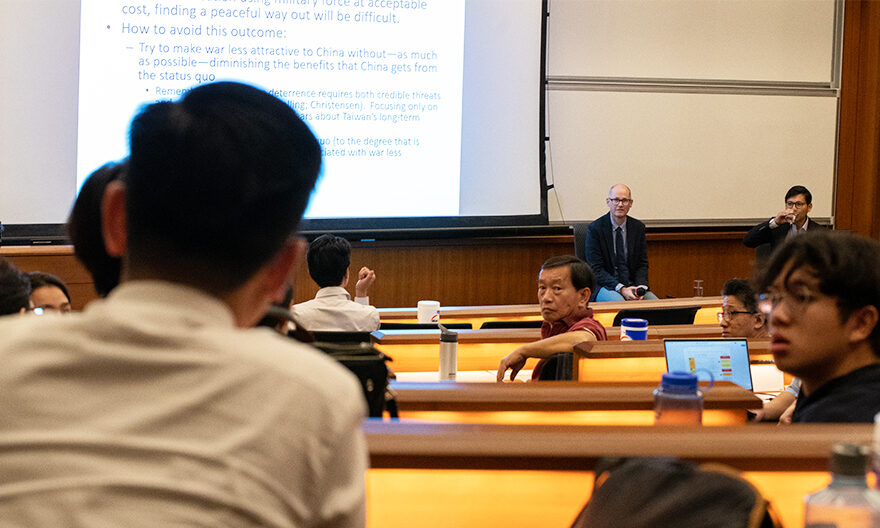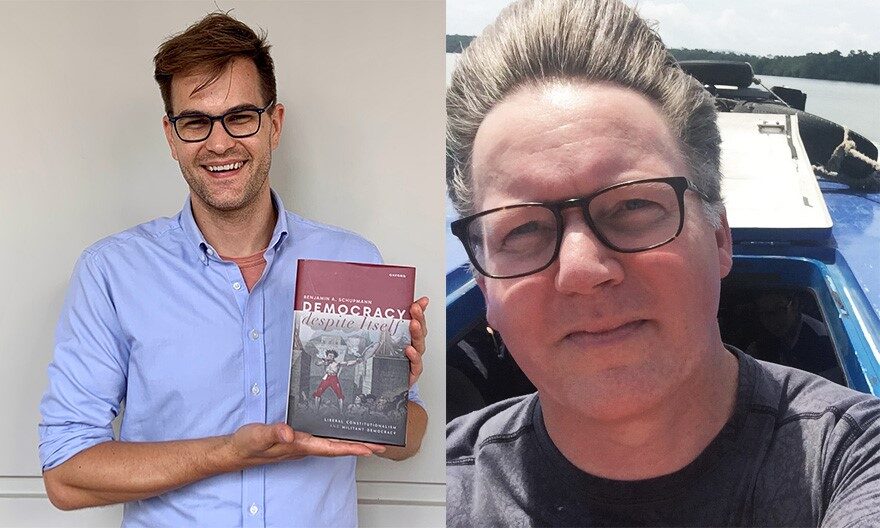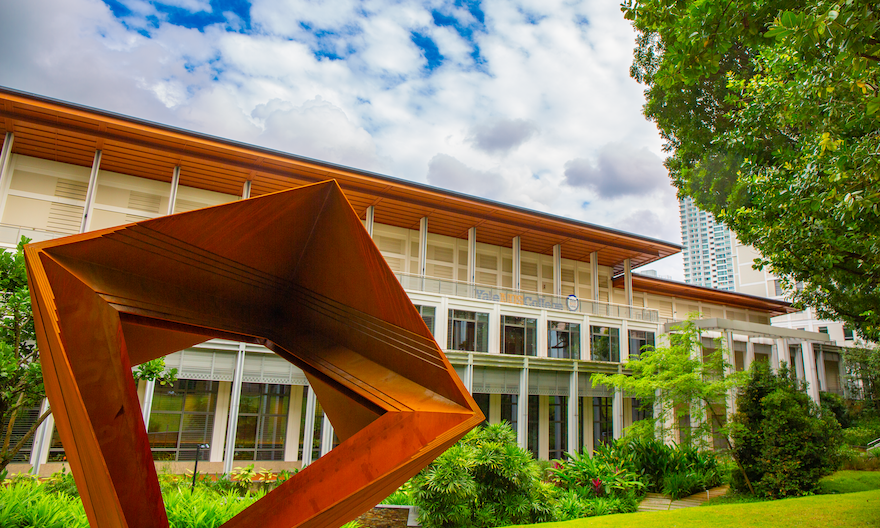Harvard University Professor delivers annual Yale-NUS Lecture on Global Affairs
By Harrison Linder
On 9 October 2019, Eaton Professor of Government at Harvard University Daniel Ziblatt delivered the second annual Yale-NUS Lecture on Global Affairs, sponsored by Professor Saw Swee Hock. Prof Ziblatt’s talk, titled “How Democracies Die”, was based on his The New York Times bestselling book by the same title, and explored the subtle and gradual ways that democracies have collapsed following the end of the Cold War, as well as some lessons on how political parties and governments can preserve democracy.
Prof Ziblatt started his lecture by explaining why strong constitutions alone are not enough to ensure the stability of a democracy. “Many Americans believe that because of the endurance of American democracy, the United States constitution is exceptional, but constitutions are not self-enacting,” he said.
“Argentina copied two-thirds of its constitution directly from the American constitution. If what matters is what’s written on the page, then Argentina’s democracy would be as stable as the United States’, but, instead, it suffered six military coups,” he added.
Prof Ziblatt emphasised that besides written rules, societal norms also undergird a thriving democracy. In particular, he pointed to the norms of mutual toleration and institutional forbearance as the two most important norms needed for a healthy democracy.
“Mutual toleration is accepting the legitimacy of our political opponents,” he said. “No matter how much we disagree with or dislike our rivals, we treat them as citizens with an equal and legitimate right to run for office, and if they beat us, they govern us.”
Profr Ziblatt ended his lecture by explaining that while many advanced democracies have shown signs of erosion in recent years, he remains unconvinced that democracy is in an era of retreat, as many pundits and public intellectuals claim. “While it’s tempting to look at the current dysfunction of many of the world’s oldest democracies as a sign of democracy’s weakness, democracies, unlike most other systems of government, are transparent, so we see their dysfunction very clearly,” he said.
“Closed systems of government like the Soviet Union can appear very strong, even when they are on the verge of collapse. But what I think the last several years has made clear is that we can’t take our democratic institutions for granted, we can’t attack our institutions by playing ‘hard ball’ with them, and we have to defend them,” he elaborated.
While primarily focused on the United States, the lecture topic of democracy transcended geographical boundaries. The lecture was attended by close to 400 students, faculty and members of the public. Head of Studies for Global Affairs, Associate Professor of Social Sciences (Sociology and Public Policy) Anju Paul said, “There is already a robust conversation underway in Singapore as well as within Yale-NUS around issues of political activism, civil discourse, and democracy. While Professor Ziblatt largely spoke on the political situation in the United States, the broader implications of his research are applicable elsewhere.”
Vice President (Engagement) Dr Trisha Craig also concurred, saying, “While the fact that Prof Ziblatt is a well-known scholar of politics helped draw a crowd, it is also the case that many on- and off-campus are interested in the kind of big global ideas he discussed.” She referenced the inaugural Yale-NUS Lecture on Global Affairs in 2018, where there was also a huge turnout for Yale Professor of Economics Mushfiq Mobarak, who spoke about global poverty and the developing world. “Again, this was not a topic specific to Singapore, but it shows the drawing power of big ideas,” she said.
The audience had great takeaways from Prof Ziblatt’s lecture. Philosophy student Michael Smith (Class of 2020) said, “It’s amazing that the College can get people who have such incredible pedigree to come here and talk about books that really [do have an] effect on the discourse both in America and around the world.”
Senior Vice President for Learning and Innovation at CapitaLand, James Andrade, who attended the lecture, added, “I think that by opening up these lectures to a broader community, you start a discussion that wouldn’t take place otherwise. I was particularly impressed by the students’ questions. I think I learned a lot from them as well as the speaker.”
Prof Ziblatt himself, who hosted an intimate students-only talk the day before, concurred with Mr Andrade. “I was so impressed with Yale-NUS students. So curious, so engaged, so worldly. Liberal arts at its best!”
Dr Craig expressed her gratitude towards Prof Saw Swee Hock for his sponsorship of the lecture series. “The College is thrilled that Professor Saw is committed to bringing scholars of global stature who are talking about some of the biggest challenges we face in the 21st Century,” she said. “It is because of generous donors like Professor Saw that Yale-NUS is able to act as a convening place of big ideas and contribute to broader conversations going on in Singapore and beyond.”
While his expertise primarily lies in European politics, Prof Ziblatt expressed an interest in learning more about Singaporean politics. “Singapore provides a challenge to how we think about political regimes,” he said. “It is forward thinking and developmentally thriving, but with one political party in government for its entire existence. I hope to return to learn more.”




